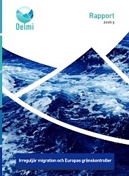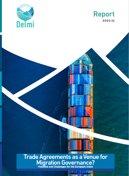Since its inception in 2015, the EUTF has aimed to address the "root causes" of irregular migration, yet its broad objectives have raised questions about transparency and effectiveness. The research presented in the policy brief highlights the EU’s strategy of combining migration control with economic development and the complexities involved in managing such a large-scale fund without clear accountability structures.
Key findings include the risks associated with outsourcing migration control to external actors, the limitations in project follow-up, and the challenges in defining long-term outcomes. This brief offers insights into how the EUTF’s goals have evolved and provides recommendations for future EU funding mechanisms.
Key Conclusions and Recommendations
- Clarify Funding Goals: Ensure that future EU funding initiatives have clear, measurable goals to strengthen accountability.
- Improve Transparency: Increase oversight and transparency, particularly in contract allocations, to facilitate better public and parliamentary review.
- Balance Migration and Development Objectives: Avoid short-term solutions by promoting approaches that consider the social and economic realities in African regions.
- Expand Legal Migration Channels: Support sustainable and legal migration opportunities to reduce incentives for irregular migration.
About the Author
Joseph Trawicki Anderson a researcher at the School of Global Studies and holds a PhD in Peace and Development research.
The policy brief was published on November 13, 2024.
Photo by Nothing Ahead from Pexels.






